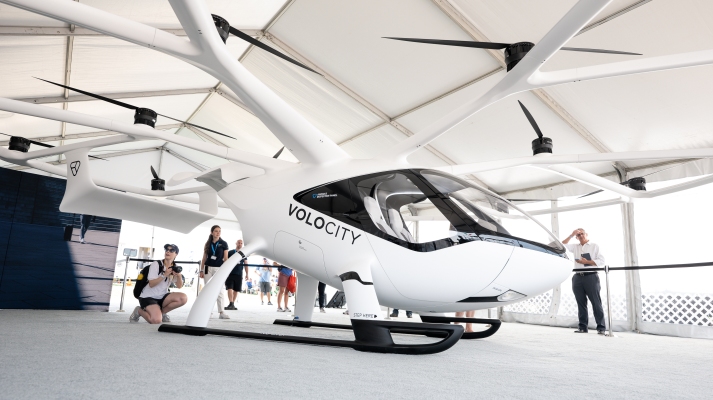Volocopter, a German startup building electric vertical takeoff and landing (eVTOL) vehicles, has secured $182 million for the second signing of its Series E round. That’s on top of the $170 million Volocopter raised for the same round in March at a $1.87 billion post-money valuation.
Volocopter is currently in full swing testing its two-seater VoloCity air taxi based on the requirements set by the European Union Aviation Safety Agency (EASA). The fresh funds will flow into the company’s testing regime to help bring it closer to Special Condition for small category VTOL aircraft certification, and by extension, commercialization. Volocopter hopes to certify its aircraft by the second half of 2023 and launch initial revenue-generating rides by 2024, the company said.
So far, the EASA has granted Volocopter Design Organisation Approval in 2019 and Production Organisation Approval in 2021 — two prerequisites for obtaining type certification for the VoloCity and launching commercially.
The additional funds to Volocopter’s Series E will also help prep the urban air mobility ecosystem — including infrastructure, integration with other mobility forms and raising public awareness — so when the VoloCity is certified, Volocopter can begin offering rides immediately, according to a spokesperson.
“First commercial operations will be a small number of Volocopters flying on specific routes (maybe one or two) with paying customers,” Helena Treeck, Volocopter’s head of PR, told TechCrunch via email. “From there, the network of routes will continuously grow to offer more and more routes and flights on connections, where we can really add value (beyond the fantastic view) to our customers, like time savings and predictability of services.”
The VoloCity took its first crewed public test flight out of Rome’s Fiumicino Airport earlier this month, where the startup also demoed its VoloIQ digital platform that Volocopter says supports everything from customer bookings to managing flight operations. That might make Rome Volocopter’s first choice for market launch, but also on the table are cities like Singapore, Paris and Neom, a smart city being built north of the Red Sea in the Tabuk Province of Saudi Arabia.
Neom came in on this round as a lead investor, alongside GLy Capital Management of Hong Kong, a Geely-backed private equity firm that focuses on smart cars, electrification and intelligent cities. Neom and Volocopter formed a joint venture company last December to integrate the VoloCity air taxi and the VoloDrone, the startup’s heavy load-lifting electric drone, into Neon’s connected mobility systems. The city has already placed an order of 15 Volocopter aircraft to begin initial flight operations within the next one to two years.
Volocopter has also formed a JV with Geely Holding to bring urban air mobility to China. The JV signed an agreement last year to purchase 150 Volocopter aircraft, and Geely is expected to assist with production.
Source by techcrunch.com





























